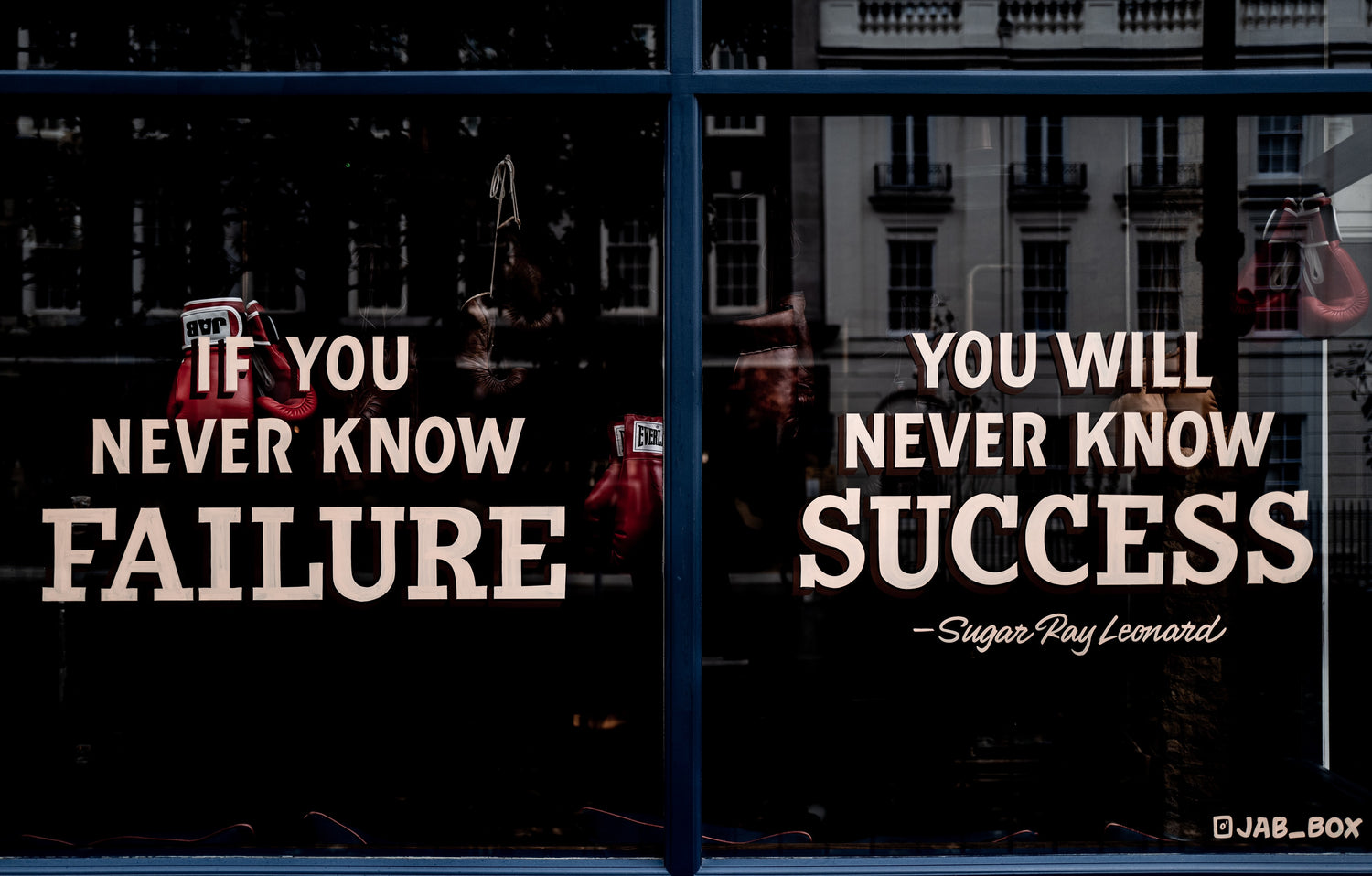It’s a pretty common thing to hear someone in the entrepreneurial world say “fail fast and fail often” meaning pursue a new innovation or business idea, but don’t pursue it for too long, or spend too much time/ money on it if it doesn’t work (quickly). So how do you define failure? Or the extent and degree of the failure?
Failure is a part of pursuing a new business idea, or building a new innovation, but these things (success) also take a long time to achieve. You will fail often when pursuing great business ideas, the trick is not to quit on your vision just because you fail at something along the way, or because someone else tells you to. There are also varying degrees or failure to consider; from a failure to quickly find the right people or convince someone of your idea’s worth, to more fundamental failures like an inability to source the growth capital you need to progress or pursuing something which clearly has no market.
Most entrepreneurs that I have come across have an absolute passion for what they do. They have a dream and a vision for their business which they can see often when others can’t. So, when some external party comes in, you tell them about your business and they show no interest, that could be considered a failure (to convince them of the value of your idea), or it could just be that they don’t see your vision. And that’s ok too. Not everyone will see your vision along the way and in many cases that’s why they are not the visionaries who come up with the ideas. Most people fear challenging the status quo.
There is a whole ecosystem of people and organisations that exist in this space, including the entrepreneurs, the wannabes, the facilitators and supporters, and those who try to take advantage. We have come across all of them that’s for sure. On top of the challenges of working out how to build a tech that hasn’t been done before, you need to be able to deal with people who say a lot of things, but who have no real value to add, and the naysayers who are not supporters and who want to see you fail so you’re not “better” than them. Challenges exist on all levels of the journey that is entrepreneurship, and it’s your ability to manage and overcome these challenges, and relentlessly chase your vision that will ultimately see you succeed.
Now the above is not to say that every idea is a good one and should be pursued relentlessly forever because that is not the case, and it’s not realistic. Everyone is an investor, and none more so than the entrepreneur themselves. They put their heart and soul into building their dream only to have it repeatedly challenged and diminished by others. I don’t believe there is an easy path to success; if it was easy, everyone would do it. If people who have not attempted this journey for themselves had any real idea how hard it is, there’s no way they would do it. Pursuing an entrepreneurial vision is likely the hardest thing you’ll ever do in your life. You are challenged emotionally, physically, mentally and in just about any other way you can think of, constantly. But the interesting thing is that in being challenged and overcoming these challenges, you become a different person; a better version of yourself.
I think the real key and deciding factor in how long and how hard you pursue the dream comes down to your own vision of the difference it will make, both in your own life and in the life of others. What is the ultimate value proposition for all parties? As hard as it is along the way, the value you get as the creator will make all the difference between choosing to fail and quit, or choosing to dig in and keep moving forward when the going gets hard.
In our own journey, there have been countless examples of challenges. We have presented our ideas to people and been laughed out of the room. We have been challenged time and time again by people who don’t see the vision. We have experienced blindingly difficult times where we are completely disrespected by organisations who look to take advantage, or who waste months and months of our time only to say “no”. As I’ve said before, value is always co-created, and relationships are king. When one party looks to take advantage of the other, ultimately the relationship will fail.
Right or wrong, I don’t believe fail fast and fail often is really a mantra that should be promoted or embraced. At least not in its literal sense. Failures will happen but resilience and the will to try again is likely a better approach. If the vision is not greater than the sum of its parts, companies like Airbnb and Uber, and countless other of the largest companies in the world never come to be the global businesses they are today. If you look up their back story, you’ll see what I mean. They languished unknown for years until it was their time, with many failures along the way.
There is also a saying “an overnight success is seven years in the making” which is quite contradictory to the “fail fast and fail often” notion. So, which one is it for you?
Failure is a part of the journey, but it does not need to be the end of the journey. Failures as you try to build something you believe in will sharpen your skills and enhance your resolve to get to where you need to be. They will also bring into focus the aspects of your idea/ vision that need some modifications. If we had not encountered failures along the way developing the first technology we started on, we would not have seen a need (or opportunity) to pivot our focus to develop a second technology and a whole new market area.
Failures in business have been the best (and most brutal) teacher we could’ve asked for. Remember, everyone’s journey is different and don’t compare your own to someone else’s. The status quo is the platform for launching innovation and progress, so go after your vision, be resilient and fail your way to success.
Cheers,
Simon




Leave a comment
All comments are moderated before being published.
This site is protected by hCaptcha and the hCaptcha Privacy Policy and Terms of Service apply.